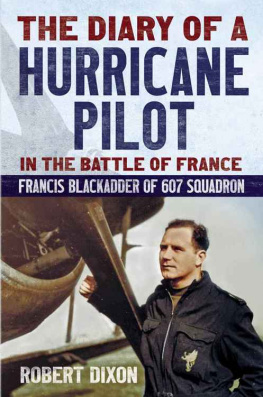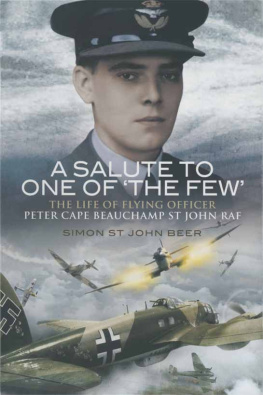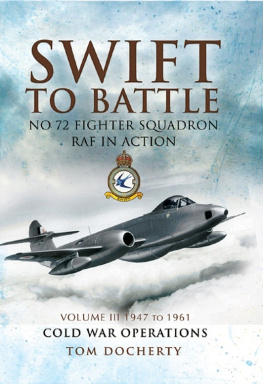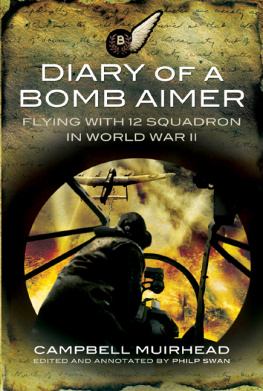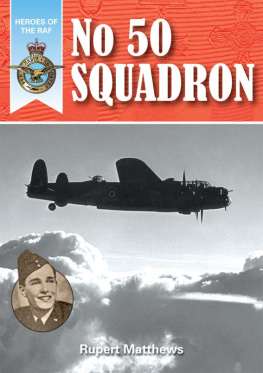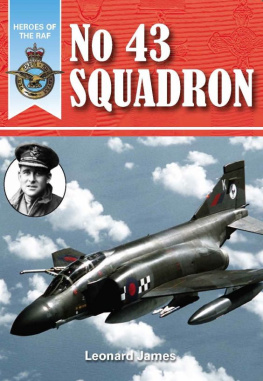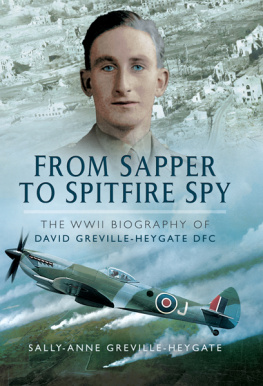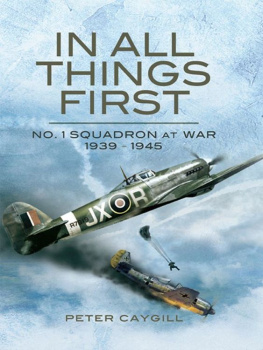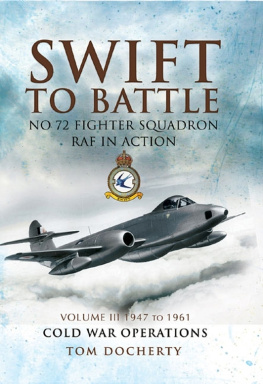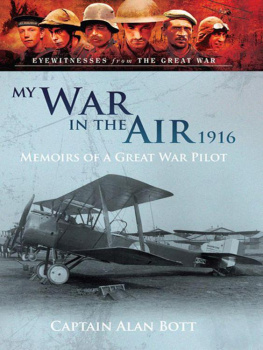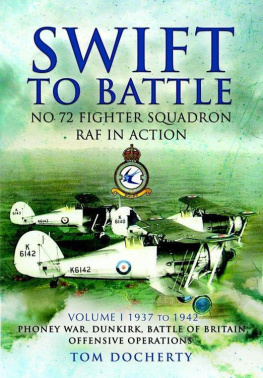
No. 607 Squadron, 1938. Detail taken from picture on page 27.

Blackadder in a Spitfire, 1944.
Fonthill Media Limited
Fonthill Media LLC
www.fonthillmedia.com
First published in the United Kingdom
and the United States of America 2015
British Library Cataloguing in Publication Data:
A catalogue record for this book is available from the British Library
Copyright Robert Dixon 2015
ISBN 978-1-78155-310-7
The right of Robert Dixon to be identified as the author of this work has been asserted by him in
accordance with the Copyright, Designs and Patents Act 1988.
All rights reserved. No part of this publication may be reproduced, stored in a retrieval system
or transmitted in any form or by any means, electronic, mechanical, photocopying, recording or
otherwise, without prior permission in writing from Fonthill Media Limited
Typeset in 10.5pt on 13pt Sabon
Printed and bound in England
Contents

Blackadder at the Air Fighting Development Squadron, May 1945.
Acknowledgements
A project such as this requires a great deal of help. I would firstly like to thank Robert Blackadder and the Blackadder family for their cooperation, encouragement, and hospitality. The subject is after all a private document, and permission to access the writings as well as photographs of Francis Blackadder was very gratefully received.
Mr Nicholas Craig was also a great help, as he always has been in the past; so has Charles J. Sample, who laid his family photograph albums as well as papers open to inspection. Both these men were willing to answer the most awkward of questions.
I would also like to acknowledge the help given by the late Pamela Turner, who let me delve into the logbooks of her late husband, Group Captain W. H. N. (Willy) Turner, and the support and hospitality of the Turner family. Mrs Davinia Helps also deserves a special mention for providing information on her cousin Launcelot Eustice Smith, and her father Doctor David Smith (Doc Dave). I would also like to thank Jen Main of the archive office of Merchiston School.
I give special thanks to Miranda M. White, who went beyond the call of duty in supplying copies of her father James Michael Bazins logbooks; to Mrs Rosemary Gaskell who provided copies of her father Peter Parrotts logbooks; and especially to Hugh Gore, for photographs and information of his uncle Will Gore. Mr Ian Pearce deserves mention for his great help in supplying the logbooks of George Morley Fidler.
The CWGC deserves praise, as does the RAF Historical Branch and the Bundesarchiv in Berlin and Aachen. The information from Jacquelin Cox of the Cambridge University Archives also warrants special credit; local newspapers, such as the Northern Echo, Sunderland Echo, and Newcastle Journal; and various cemeteries and crematoria, ever overlooked when thanks are given out. No matter how small the contribution, I thank you all. For the endless supplies of nutrition over a long periodI would like to thank my wife Shirley.

The watch office, Vitry: Parrott, Thompson, Dixon, Pumphrey, Blackadder, Gore, and Smith standing by the door (from left to right). Detail taken from picture on page 50.
Foreword
In common, I suspect, with many of the post-war generation of this country, whose families and relatives had participated in service action during the Second World War, I knew until only very recently precious little of substance about the subject of this account, namely my own father, William Francis Blackadders involvement. This ignorance I attribute in retrospect to two factors: firstly, a totally understandable reluctance on his part to relive the most traumatic, life-changing experience imaginable and one impossible to convey to any who had not themselves participated in this critical watershed in our history; and secondly, an endearing modesty bordering on reticence, prevalent among many of his fellow fighters, who can in fact claim to personify the true heroes of that time.
Much has been written elsewhere on the Battle of Britains pivotal role in 1940 in helping to preserve our islands freedom from invasion, which in turn created the only viable platform for the successful launch of Operation Overlord on D-Day to liberate Europe for years later. Far less, I feel, has been chronicled of its predecessor, the Battle for France of 193940, so the publication here in full, for the first time, of my fathers actual handwritten diary of that campaign will, I am confident, help fill a gap in our knowledge.
Robert Dixon is already a well-known contributor in this field, having earlier written a full account of my fathers Auxiliary Air Force Squadron in his publication, No. 607 Squadron: A Shade of Blue, as well as numerous related articles on the period in question. In this latest work, his well-informed introduction covers the background to my father from his schooling in Edinburgh and pre-war air training right up to the moment when No. 607 Squadron was called to arms in August 1940. This is followed by a verbatim transcription of my fathers personal diary, A Flight 607 (Fighter) Squadron Auxiliary Air Force: Usworth 12/8/394/6/40, reflecting the eight-month Phony War period and culminating in the critical days of May 1940 when the Germans appeared invincible and Britain faced the gravest crisis in her history. Robert Dixons account concludes with his own interpretation, supported by my fathers pilot log books of the latters own as well as the squadrons involvement during those momentous days and weeks of the Battle of Britain from July to October 1940, and followed by his later transfer to a series of non-flying posts during the remainder of the war and subsequently.
I am delighted to be given this opportunity to record my own familys gratitude to Robert Dixon for the painstaking time and effort he has invested in this long-awaited record of someone very close to us, who nevertheless chose not to divulge his true contribution to the national cause in his lifetime. He himself would have elected not to have had his story published, believing to the end that his contemporaries were only carrying out their fundamental duty in fighting for the future freedom of this country. This understandable viewpoint, however, must be outweighed by the increasing necessity to maintain for future generations the memory of the sacrifices made by our servicemen and women, to preserve for this country and the rest of the free world the liberty which we still enjoy today.
Robert H. Blackadder
December 2013, Shoreham by Sea, West Sussex
Introduction
This is a book featuring one mans diarythe diary of a pilot. It covers the period from the heady beginnings of the Second World War in 1939 to British defeat in the Battle of France. Although the book covers this battle in some detail, it is not a blow by blow account. Neither is it a definitive account, a feat unlikely to be achieved due to the amount of research still in progress in that field.

